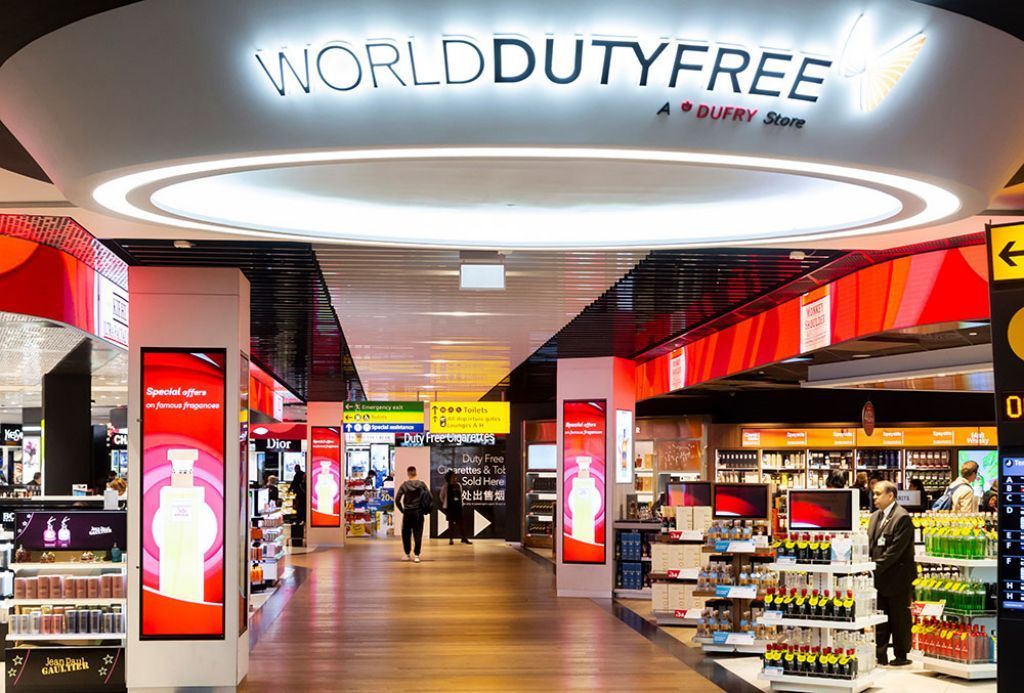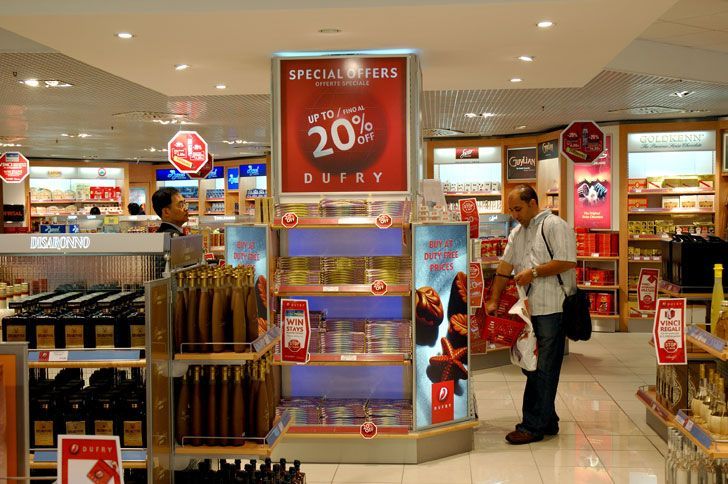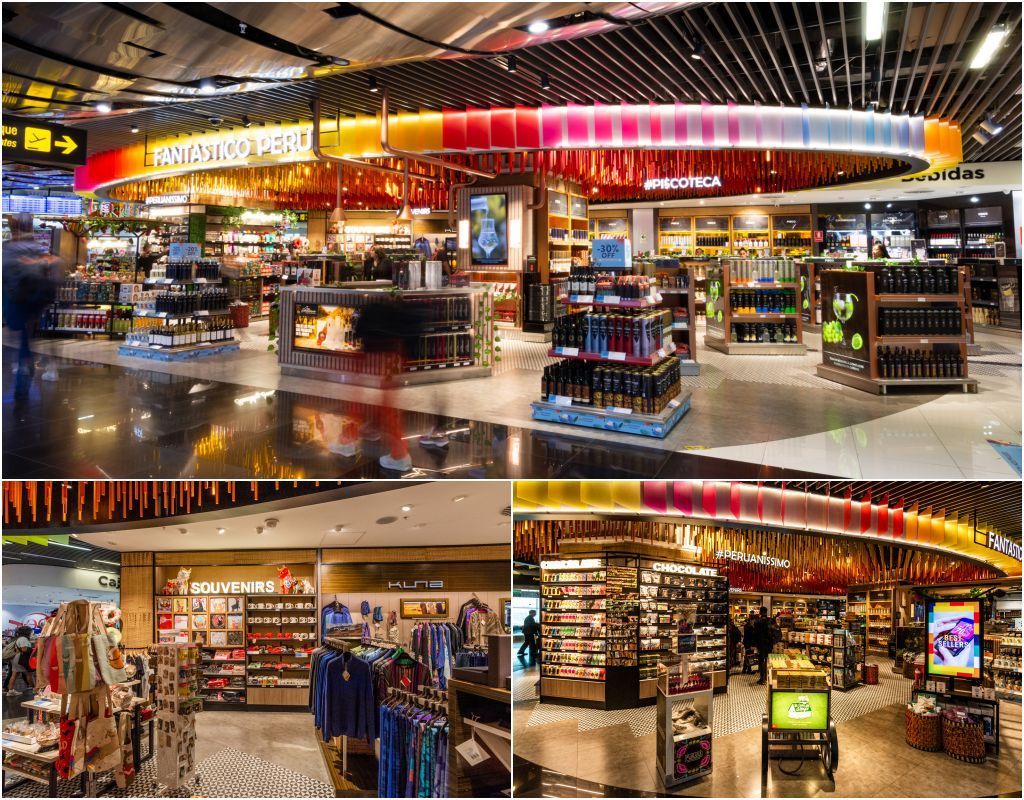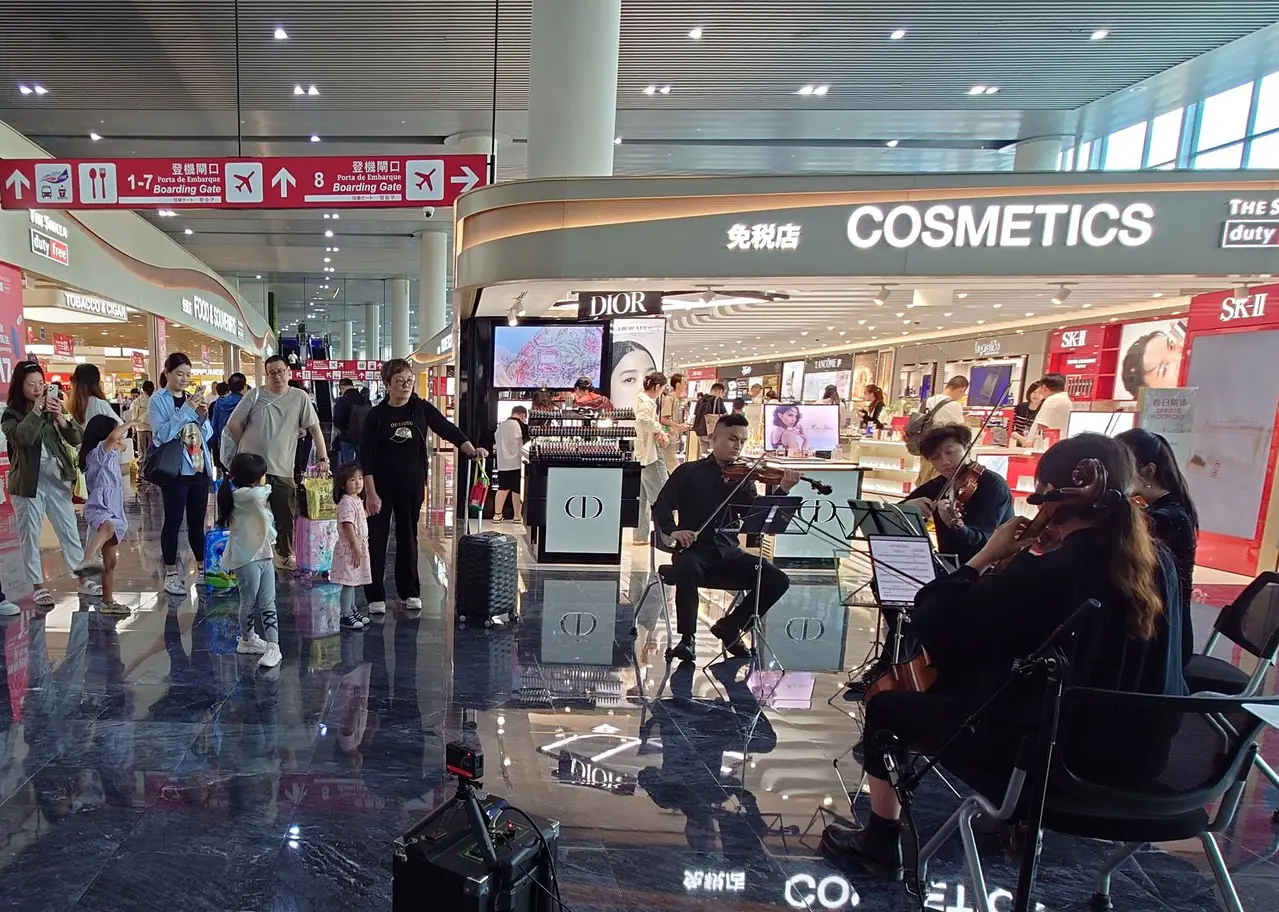A cross-party group of over sixty MPs and Peers have written to the Chancellor calling for the introduction of duty free on arrival shops in British airports, international rail and ferry terminals.
In the joint letter sent last week, parliamentarians urged the UK Government “to help our travel sector flourish and take full advantage of the UK’s EU departure. Stating that “this easy to implement, cost-neutral policy will drive forward investment through capital expenditure, create jobs and according to independent research, increase passenger spend by between 20 – 30 per cent.”
Organised by the Chair of the Future Aviation All-Party Parliamentary Group, Henry Smith MP it has received support from the likes of Sir Graham Brady MP, Chair of the powerful 1922 Committee, Lord Davies, former Government Aviation Champion in Theresa May’s Government and both the Liberal Democrat and DUP official Treasury Spokesperson.
Commenting on this initiative, Henry Smith MP added: “This joint letter showcases the strength of political feeling on this matter. The UK’s travel sector is vital to our economic success which our recovery will rely on. We need to ensure it is in a position to support a global Britain, deliver long term and sustainable jobs to the UK, and play its part in the safe and sustainable recovery of international travel. The introduction of duty free on arrival shops delivers that helping hand.”
Fundamental to this initiative is that it will not take sales away from the UK’s high street and deprive UK businesses of sales. Instead, it will repatriate sales that currently take place at the point of departure – mostly in Europe. Regardless of whether this policy is implemented, these products will still be purchased. Duty free on arrival shops will ensure the economic benefits are realised in the UK. This is good news for our travel industry and great news for UK plc.
This initiative is strongly supported by industry too. Francois Bourienne, Chair of the UK Travel Retail Forum added: “Duty free on arrival shop should form an integral part of the Government’s support package for our ailing travel industry. The beauty of this initiative is that it will not cost the Government a penny. More than tax breaks or grants, the Government should look to self-sustaining measures, such as duty free on arrival shops, which are mindful of the fiscal restraints on our economy and allow the industry to stand on its own two feet and flourish. With the European Union considering such an initiative the UK must follow suit to remain competitive.”
FAQ: Duty Free Arrival Stores
Will Duty free on arrival stores take sales away from the UK high street?
No.
The introduction of duty free on arrivals stores will not have a material impact on domestic retail sales in the UK, as the sales made at arrivals stores are not sales that are already taking place in the UK economy.
Rather, arrivals store sales would represent a repatriation of sales that currently take place at the point of departure – mostly likely in the EU in the majority. Regardless of whether this policy is implemented, these products will still be purchased. We view the concept of UK arrivals stores as very much an opportunity to capture duty free sales already taking place abroad, and ensure the economic benefit of those sales are realised in the UK.
Will Duty free on arrival stores prevent the UK from meeting certain health objectives?
No.
Arrivals duty free does not lead to increased sales of products, rather it is about where the sale takes place. It should also be noted that the passenger entering the UK is still subject to the same limits of goods they can carry with them as duty free purchases.
How can arrivals duty free help meet environmental goals?
By reducing the weight carried on board an aircraft, ferry or train, duty free arrivals shops also contribute to environmental goals of reducing aviation emissions. Arrivals duty free provides passengers with a choice to purchase at the point of departure and carry the item(s) with them on their flight, or to wait until they arrive at their destination and make their duty free purchases then. Though a small gain, the path to cleaner aviation is through every % point reduction.
Will arrivals duty free place a major burden on customs officers at GB airports?
No.
The amount of products that can be carried by passengers arriving from a third country will remain the same. This means there is no change to the surveillance and enforcement role of customs officers. It may even be of assistance to the customs officers as the shopping carried by the passengers will visible as it is carried in shopping bags from the arrivals store, rather than having being placed into larger bags and luggage.
Won’t this only help larger airports?
No.
There is a clear benefit for regional airports, particularly those that feed traffic to and from international hubs to a various region. Retail sales can account for as much as 40% revenue in some regional airports – highlighting the critical role retail plays in supporting regional connectivity in the UK. Arrival duty free stores actively support this ecosystem and help deliver on further growth.
Would the introduction of arrivals Duty Free impact on the tax generation in the country where it is based?
No.
Purchases at arrivals duty free have no impact on domestic sales of products – these sales are displaced from airport duty free stores outside GB. There is no impact on government tax revenue, and no increase in the amount of products entering the market as travellers duty free allowances remain the same. Arrivals Duty Free is ‘Cost Neutral for Governments’. In fact, arrivals duty free will contribute to boost revenues for governments by creating employment and generating corporate taxes.
How quickly can arrivals shops be opened?
This is dependent upon the space available and layout of the airport in question. Creating new retail areas at GB airports may trigger significant capital expenditure for building works as infrastructure is adapted to take advantage of the new opportunity, creating the opportunity for new local investment and additional jobs.












